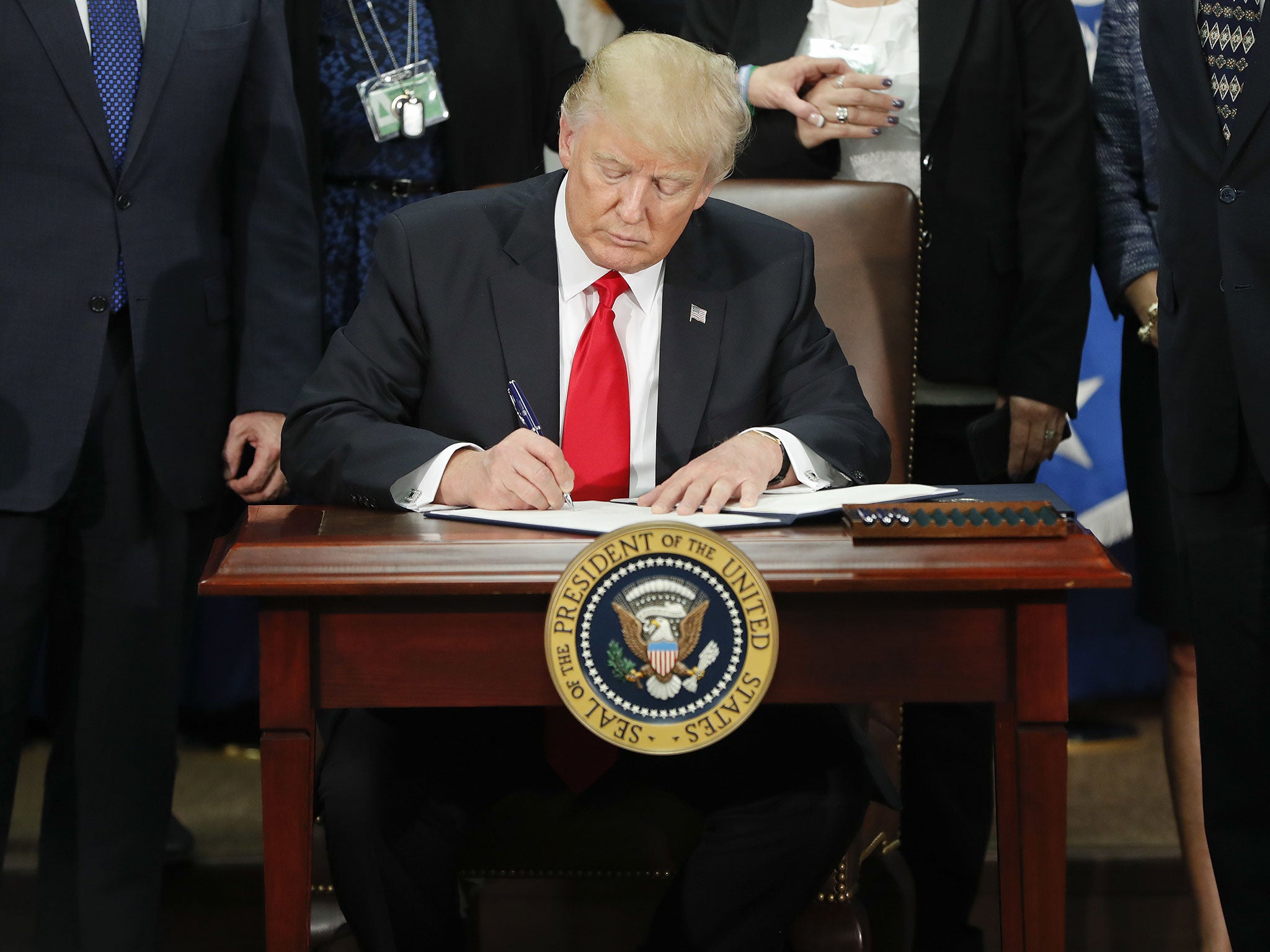Donald Trump says torture 'absolutely works' in first major interview as President
In 2015 the Senate voted overwhelmingly to ban all forms of torture in the US

Donald Trump claims senior intelligence officials have told him “torture works”, and that he would “absolutely” bring back banned interrogation methods like waterboarding.
The President said his administration was reviewing how the US conducts itself in the fight against militant organisations around the world.
Speaking in an interview with ABC News, Mr Trump said he was considering reopening the CIA’s so-called “black site” prisons, secret facilities around the world that were used to detain suspects in George W Bush’s “war on terror” before they were formally shut down by Barack Obama.
Mr Trump was asked by ABC News about his campaign trail promises to bring back waterboarding “and tougher” in the battle to defeat Isis. Mr Trump cited the group’s atrocities against Christians and said “we have to fight fire with fire”.
“When they're shooting, when they're chopping off the heads of our people and other people, when they're chopping off the heads of people because they happen to be a Christian in the Middle East, when Isis is doing things that nobody has ever heard of since Medieval times, would I feel strongly about waterboarding?" he said.
"I have spoken with people at the highest level of intelligence and I asked them the question 'Does it work? Does torture work?' and the answer was 'Yes, absolutely'.
"They chop them off and they put them on camera and send them all over the world. So we have that and we're not allowed to do anything?” he added.
"I will rely on Pompeo and Mattis and my group and if they don't want to do it that's fine. If they do want to do then I will work toward that end.
"I want to do everything within the bounds of what you're allowed to do legally but do I feel it works? Absolutely I feel it works."
Mr Trump risks damaging ties to liberal Western allies if he brings back Bush-era anti-terror tactics like the network of overseas detention and rendition facilities – and waterboarding, the process of pouring water over the face of a detainee to simulate drowning, which is widely regarded as a form of torture.
In 2015, the Senate voted overwhelmingly to ban all forms of torture in the US, putting into law an Obama executive order.
And unlike some of Mr Trump’s more conservative policies, the move is also extremely unpopular among many senior Republican congressmen.
"The President can sign whatever executive orders he likes. But the law is the law. We are not bringing back torture in the United States of America," said Senator John McCain, a Republican who underwent torture as a prisoner of war in Vietnam.
There is no credible scientific evidence to suggest torture works in extracting reliable information from a victim. A book on the issue by Trinity College Dublin's professor of experimental brain research, Shane O'Mara, found that - morality aside - "proponents of torture are left with an indefensible case".
Ex-CIA director Leon Panetta said it would be a "serious mistake to take a backward step" on torture.
Mr Panetta told the 100 Days programme on BBC World News: "The reality is we really don't need to use enhanced interrogation in order to get the information that is required.
"General Mattis believes that, others in the intelligence business believe that, and the FBI believes that, so I think it would be a mistake to go back to that.
"I think it could be damaging in terms of our image to the rest of the world."
Two officials said Mr Trump could sign an executive order in the next few days relating to the possible reopening of CIA black sites, Reuters reported.
The order would call for a high-level review into “whether to reinitiate a program of interrogation of high-value alien terrorists to be operated outside the United States” and whether the CIA should run the facilities, according to a copy of the draft published by the Washington Post.
While Mr Trump confirmed he was considering the return of black sites, Trump administration spokesman Sean Spicer said the draft was not a White House document.
And US House of Representatives Speaker Paul Ryan said of the Washington Post draft: “My understanding is this was written by somebody who worked on the transition before who's not in the Trump administration. This is not a product of the administration.”
Join our commenting forum
Join thought-provoking conversations, follow other Independent readers and see their replies
Comments
Bookmark popover
Removed from bookmarks